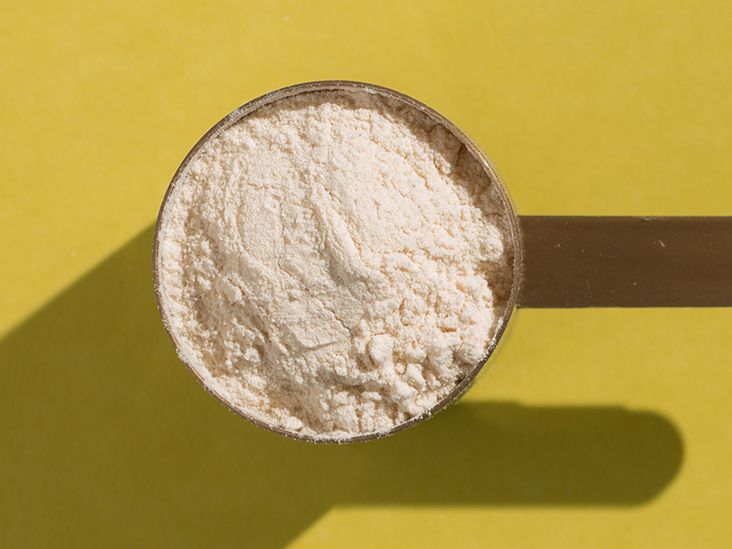Muscle Milk is a popular protein-rich drink. But although it has some benefits, there are concerns about significant fat levels, artificial ingredients, and heavy metals.
Breaking news: Muscle Milk isn’t milk. It’s actually a protein-packed supplement formulated with calcium and sodium caseinate, milk protein, maltodextrin, and a vitamin-mineral blend.
Muscle Milk is designed to fuel your workouts, help build muscle mass, and assist with muscle recovery. Many gym-goers and athletes grab it post-sweat session, hoping to get that extra edge and repair those worn-out muscles.
But… is muscle milk good for you? Here’s everything you need to know.

Muscle Milk has its shining moments, especially for those looking to build some serious gains or need a quick pick-me-up. Here are the potential benefits:
Packed with protein
Unsurprisingly, Muscle Milk contains protein, a nutrient essential to muscle repair and growth. It can be a good choice for those post-workout moments when your muscles cry out for sustenance.
Provides sustained energy
Due to its higher fat content, Muscle Milk can provide longer-lasting energy than low-fat protein shakes. Perfect for when you’re in between meals and need to fend off the hangry monster.
Rich in essential amino acids
Amino acids are the building blocks of proteins. Muscle Milk provides a blend of these little molecules, which aids in muscle recovery and reduces muscle soreness.
Convenient and ready-to-drink
Although you can buy Muscle Milk in powder form, there are also ready-to-drink versions with no prep needed.
If you’re always on the go, these pre-prepared bottles are a quick and easy way to boost protein without mixing or blending.
Nothing’s perfect in this world, and Muscle Milk also has caveats. While it’s got its perks, there are also aspects you might want to side-eye.
Higher in calories and fat
The extra fat can push you over your daily limit if you’re on a strict calorie-controlled diet. According to the label, Muscle Milk contains 12 percent of your daily value of total fat and a whopping 18% of the daily value of saturated fat.
So it might be suitable for sustained energy but not so great if you’re trying to cut calories.
Contains artificial ingredients
Most varieties of Muscle Milk contain artificial ingredients, including flavors and sweeteners. The Center for Science in the Public Interest advises peeps to avoid these sweeteners, as they can harm the balance of gut bacteria, filter through into breastmilk, and increase the risk of certain diseases.
If you’re all about that natural life, you might want to read the Muscle Milk label carefully and consider if it’s for you!
Potential for heavy metals
A study from Consumer Reports found trace amounts of heavy metals like arsenic, cadmium, and lead in some protein products, including Muscle Milk. While it was within safe limits, regular consumption isn’t ideal.
Muscle Milk is a protein-enriched beverage (not milk!) that contains more fat than many other protein drinks. This is likely because the company markets Muscle Milk as a complete meal solution containing various nutrients to aid recovery and muscle growth rather than just a protein-boosting supplement.
So, let’s uncork that bottle and look at its nutritional highlights. According to the Food Data Central database, here’s what you get in a standard serving of 70 grams (g) of Muscle Milk powder (calculated from the 100 g values):
- Calories: 288 kcal
- Carbs: 13 g
- Protein: 32 g
- Sugars: 4 g
- Magnesium: 140 milligram (mg)
- Calcium: 350 mg
- Iron: 6 mg
Remember, the exact numbers can vary based on the specific Muscle Milk product and flavor. Always check the label to ensure you’re sipping what suits your fitness goals!
Muscle Milk may be a frenemy. Its protein-packed goodness can give you that post-workout boost, while its convenience can be a lifesaver on those manic Mondays. But Muscle Milk has its quirks — significant fat content, a dose of artificial ingredients, and maybe some heavy metals.
The key? Balance and moderation. If you’re eyeing it as a daily protein go-to, remember to keep tabs on those calories and maybe skip versions with too many artificial extras. But if you’re contemplating Muscle Milk marathons to replace every meal, it’s likely time to pump the brakes.

